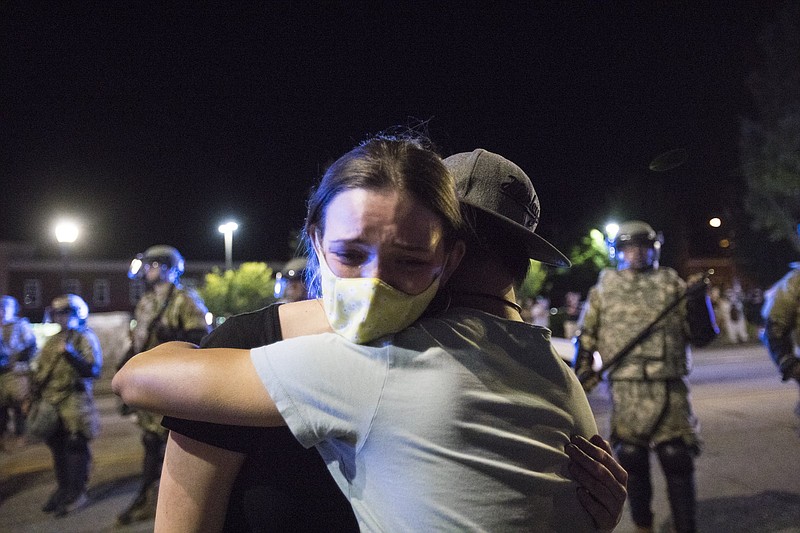Some local attorneys are questioning local law enforcement leaders' decisions to enforce disorderly conduct charges against Chattanooga's George Floyd protesters but not Hamilton County's mask mandate after one of the demonstrators declined to plead guilty.
Sydnie Jeffers, 23, was arrested on the night of May 30, allegedly for blocking the intersection of Frazier Avenue and Tremont Street near Coolidge Park. At least four other people were taken to the Hamilton County Jail that night as police tried to push the crowd into Coolidge Park.
Demonstrators nationwide were protesting police brutality after Floyd's death under the knee of a Minneapolis police officer. Jeffers was charged with disorderly conduct, a class C misdemeanor, and booked into the jail. She was later released on a cashless bond.
A violation of the county's mask mandate, which went into effect July 10, also is a class C misdemeanor.
Attorney Hank Hill, who does not represent Jeffers, filed a motion in her case questioning the fairness of the state's enforcement of one class C misdemeanor and not the other.
Jeffers was arrested "while exercising her legitimate rights under Amendment I to the Constitution of the United States of America of the right of 'the people peaceably to assemble, and to petition the government for redress of grievances," Hill wrote.
He argues that "the violation of the mask ordinance is far more fundamentally detrimental to the values of society including potential loss of substantial numbers of lives of American citizens."
Any attempt by the state of Tennessee to prosecute any other "less (socially significant)" class C misdemeanor, Hill wrote, would violate the 14th Amendment's assertion that no states can enact or enforce a law that abridges the "privileges or immunities of citizens of the United States."
Hill argues that the way in which the disorderly conduct law has been enforced by both Hamilton County Sheriff's Office and the Chattanooga Police Department is "grossly unconstitutional."
Chattanooga police and the sheriff's office both declined to comment.
Hill noted he plans to subpoena both Sheriff Jim Hammond and police Chief David Roddy and require them to supply "all of their written communications and/or public statements regarding" the mask mandate and their decision not to enforce it.
Hammond has said his deputies will not "harass" individuals about the masks, although, at the time, he didn't take citations and subsequent punishment off the table. But Roddy has made his department's stance much clearer, saying that while he believes in the need to wear a mask, his department will not enforce the mandate at all.
The reason, he said in a tweet, was that the mandate "created a strong possibility of compelling community members to disclose medical conditions to [law enforcement], allows for specific exemptions and raises significant concern over enforcement in marginalized communities."
Contact Rosana Hughes at rhughes@timesfreepress.com or follow her on Twitter @HughesRosana.
